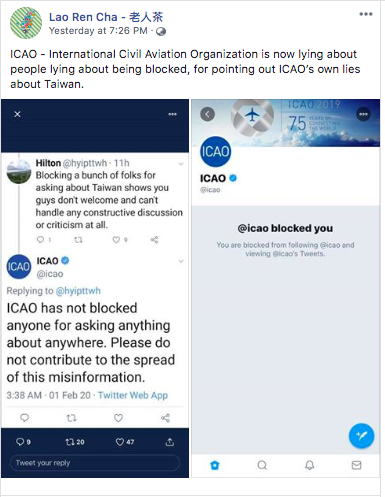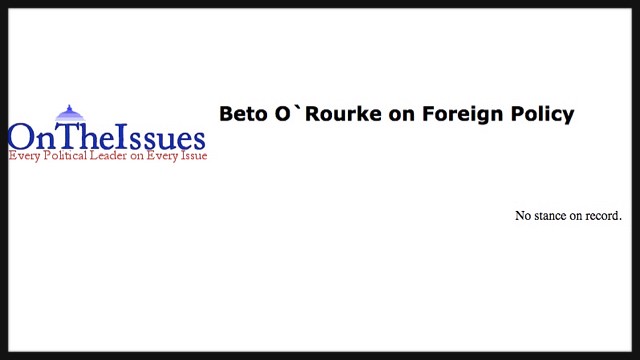 |
| Screenshot from the South Park episode where Randy kills Winnie the Pooh in China |
Years ago I was having a one-on-one class with an adult student who - athough we didn't talk about politics much - seemed to lean pro-KMT, and had a strong enough identification with the ROC for me to have noticed it. Although generally we avoided the topic - I think she knew where I stood, it's not hard to tell - we did once talk about whether it mattered if Taiwan were a UN member nation. I said it did.
She disagreed, saying it didn't really make a difference as membership in such organizations confers abstract benefits at best. I mentioned the data-sharing of organizations like the WHO, and she pointed out that Taiwan handled SARS just fine without them (I'm not so sure about that, but...whatever). To her, these organizations conducted endless meetings and discussed an awful lot, but didn't actually do much of anything, and had no real political power, so it was not only fine not to participate, but preferable to stay locked out as the Republic of China, rather than be allowed in as Taiwan, because the ROC still mattered on some level.
Yeah, well, you can see why we didn't talk about politics that much. Anyway.
All of this happened despte the fact that the World Health Organization (WHO) did not recommend suspending flights (source: above link). And yet, two of these countries - Italy and Vietnam - included Taiwan or Taiwan's flagship airline in their bans.
It's worth noting that Taiwan's flagship airline is very confusingly named China Airlines.
Vietnam has since reversed its ban on air travel to and from Taiwan, but Italy has not.
And this is why my student was wrong. While it's true that "health statistics" and "information sharing" and "taking part in discussions" all seem very abstract, air travel is concrete and real.
And this is why my student was wrong. While it's true that "health statistics" and "information sharing" and "taking part in discussions" all seem very abstract, air travel is concrete and real.
When international organizations like the WHO, Interpol and International China Asskissers Organization International Civil Aviation Organization (ICAO) exclude Taiwan - and in ICAO's case, blocks anyone who questions this exclusion on social media, myself included - it gives national governments the cover to follow suit and just treat Taiwan as a part of China.
This has real-world, concrete effects. When flights to and from your country are at risk of being suspended because some dingbat decided your country should be included in a China travel ban as "a part of China", that's not abstract. That's real canceled flights on real airplanes, real lost business, real travelers with real suitcases stuck in real airports. That's real people who are trapped in a place and can't get home (it's unclear to me if travelers from Taiwan would have been able to circumvent the Italian and Vietnamese bans by flying through another country, however, changing a ticket that way costs real money from real bank accounts).
This has real-world, concrete effects. When flights to and from your country are at risk of being suspended because some dingbat decided your country should be included in a China travel ban as "a part of China", that's not abstract. That's real canceled flights on real airplanes, real lost business, real travelers with real suitcases stuck in real airports. That's real people who are trapped in a place and can't get home (it's unclear to me if travelers from Taiwan would have been able to circumvent the Italian and Vietnamese bans by flying through another country, however, changing a ticket that way costs real money from real bank accounts).
I want to be very clear here: I don't think the dingbats who made these decisions actually believe Taiwan is a part of China. At best it's highly unlikely. Consider the cultural, economic and geographic ties between Vietnam and Taiwan, as well as a fair amount of well-publicized controversy surrounding these ties. There's just no way that Vietnamese policymakers don't know that Taiwan is a thing.
More likely, the airhead bureaucrat who made these decisions either simply doesn't care, or is perfectly aware that Taiwan is separate from China with a separate (and more effective) healthcare system and far fewer confirmed coronavirus cases, but doesn't want to anger China. So they use this exclusion from international organizations and their own country's lack of official recognition as cover for their bad decisions, thinking they're doing the right thing by keeping China happy.
More likely, the airhead bureaucrat who made these decisions either simply doesn't care, or is perfectly aware that Taiwan is separate from China with a separate (and more effective) healthcare system and far fewer confirmed coronavirus cases, but doesn't want to anger China. So they use this exclusion from international organizations and their own country's lack of official recognition as cover for their bad decisions, thinking they're doing the right thing by keeping China happy.
My student was just a person with an opinion rather than a politician, lobbyist, writer or policy analyst. However, it's also fairly common for people with more influence to try and soften the way Taiwan's current situation looks. For example, one might say it is acceptable for Taiwan to just have observer status. While an improvement, no, that would not be "okay", it would be a pittance - begging for scraps when we deserve a full seat at the table.
Others say that "unofficial" ties with other countries are good enough. Often, they are, but I'd contend this is still not good enough.
Others say that "unofficial" ties with other countries are good enough. Often, they are, but I'd contend this is still not good enough.
It's true that Taiwan's formal diplomatic relations are not necessarily our friends or allies. Though some of them do speak up in support of Taiwan in those international organizations, for the most part they are the result of 'checkbook diplomacy' and thus offer little benefit, while being fairly easily lured away. In the meantime, countries that do not officially recognize Taiwan show support regardless - recently, the US, Canada and Japan have all said Taiwan deserves some sort of status at the WHO.
However, I'd still contend that it does matter - if your country does not recognize Taiwan, it's easier for your lazier or more malevolent, China-fearing bureaucrats to just lump it in with China. Then Taiwan has to "scramble" through unofficial channels to essentially beg - like a starving orphan - not to be hurt in very concrete ways by being included in China policy.
And all this happens despite the fact that Taiwan is not a starving orphan. It's a wealthy heir to human rights and democratic norms in Asia.
We deserve better - full recognition and a full seat at the table, and we deserve not to have to beg for it in a whisper from the back door, like a hungry maid creeping from the servant's quarters, asking the master's less-cruel son whether she can have a scrap of extra bread after dinner.
And the benefits of a fairer arrangement are not 'abstract' at all.





